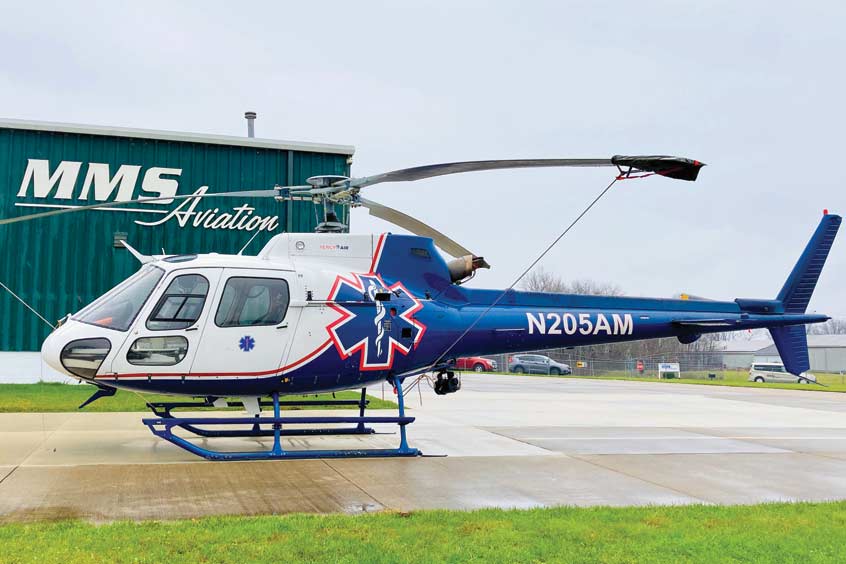See more information from the Business Air News Handbook
Press Release

Issued by Air Methods.
December 2, 2020
Mercy Air, a South Africa-based humanitarian relief organisation, has announced the donation of an Airbus AS350B2 helicopter by Air Methods, a leading air medical service in the U.S., to support humanitarian relief flight operations in southern Africa. The helicopter will enable Mercy Air to expand medical, agricultural, and educational programmes and disaster response in the region.
According to Matthias Reuter, director of Mercy Air helicopter operations, the donated helicopter will significantly benefit at-risk populations. “Air Methods' generous gift will dramatically expand our relief flight operations into unserved rural areas in southern Africa. The helicopter will enable us to efficiently reach tens of thousands of individuals annually who would otherwise lack access to basic medical care or vital supplies during natural and manmade disasters. Additionally, the helicopter will support our flight training programme for pilots joining our team without interrupting essential relief flights.”
Mercy Air's private flight operations, which now include three Airbus AS350B2 helicopters and two airplanes (a Quest Kodiak and a Cessna 310), enable humanitarian service in a region where great distances, limited infrastructure and difficult topography make access infeasible via other modes of transportation. By reducing travel time from days by land to mere hours by air increases the effectiveness, economy and impact of relief efforts and maximises the delivery of care. Reuter continued, “We routinely serve people groups who cannot be efficiently reached by ground transportation. Travel in many service areas requires many long hours to days by four-wheel drive vehicles or canoe in severe conditions. Helicopters can reduce travel time to mere minutes. This significantly increases service time for volunteer teams and the capacity to transport essential materials such as medicine, agricultural supplies and emergency rations. Helicopters are the most effective means to deliver volunteer medical teams, educators and agronomists and their supplies to people who live beyond the end of the road.”
One such medical outreach supported by Mercy Air is Sight Flight Eswatini which provides free vision screenings, single diopter reading glasses and corrective surgeries for cataracts and other disorders of the eye. Dr. Jonathan Pons, who directs eye care programmes from Good Shephard Hospital in remote Siteki, Eswatini, stated, “The use of Mercy Air's helicopters to deliver our medical teams into remote communities has been truly life changing. There were many villages in Eswatini that we had not reached for more than a decade whose people now receive the gift of sight rather than endure blindness and diminished life expectancy. Mercy Air's newest helicopter will not only support continued Sight Flight operations but expand vital medical services such as diabetes, cardiology, neonatal and dental care.”
The donated helicopter has been repositioned to MMS Aviation at Coshocton Richard Downing Airport (I40), in Coshocton, Ohio, where it will be transitioned from medevac to utility configuration. This represents the third such collaboration between Mercy Air and MMS Aviation, a peer nonprofit mission aviation organisation that provides Mercy Air hangar space and assistance by highly experienced aircraft mechanics without charge. Reconfiguration will include removal of the aeromedical care kit, additional seating to accommodate a pilot and up to six passengers, an external load cargo hook, new communications and navigation equipment and various upgrades that will enhance performance and safety for the challenging flight environment in remote Africa. Following the projected several-month maintenance and flight-training programme, the helicopter will be transported to southern Africa to initiate operations.
Reuter added, “Partnerships, large and small, are essential to support our relief flight operations. We are eternally grateful that Air Methods has chosen to partner with us in the ongoing work. Its gift will catalyse service to countless people in need for decades to come.”